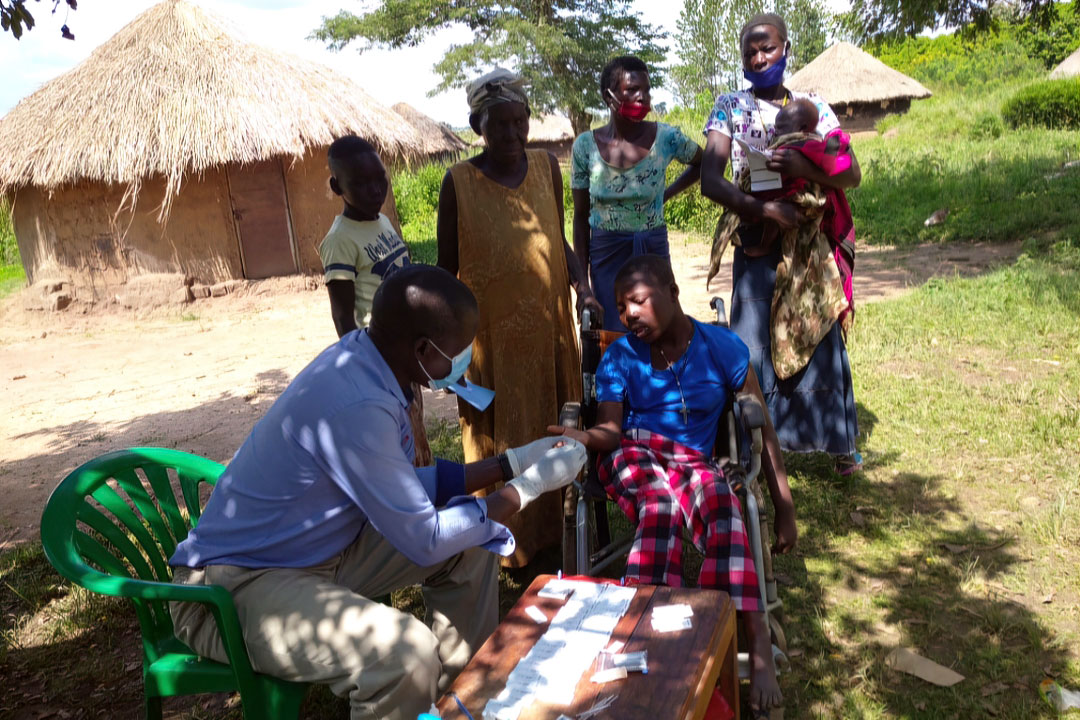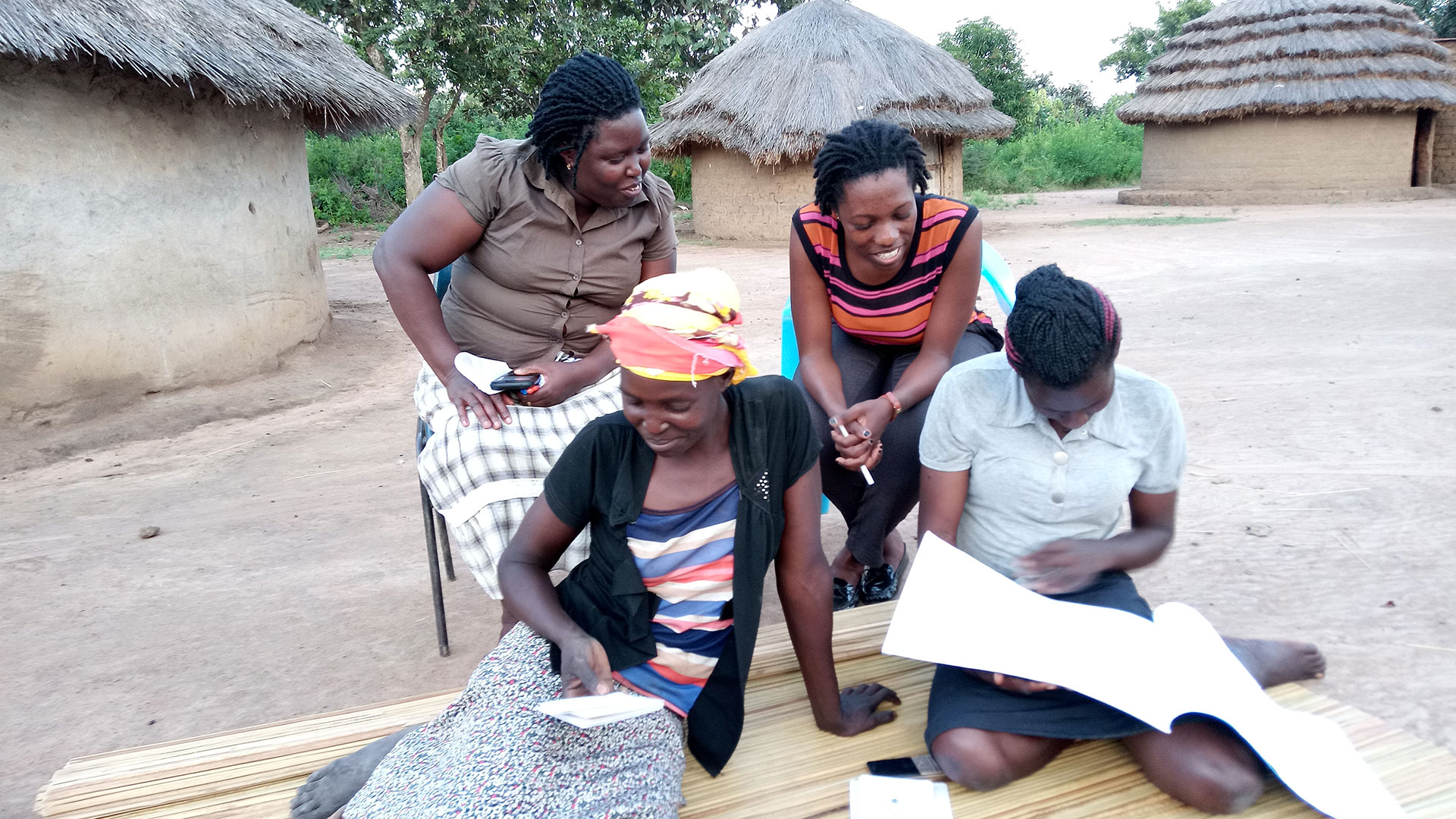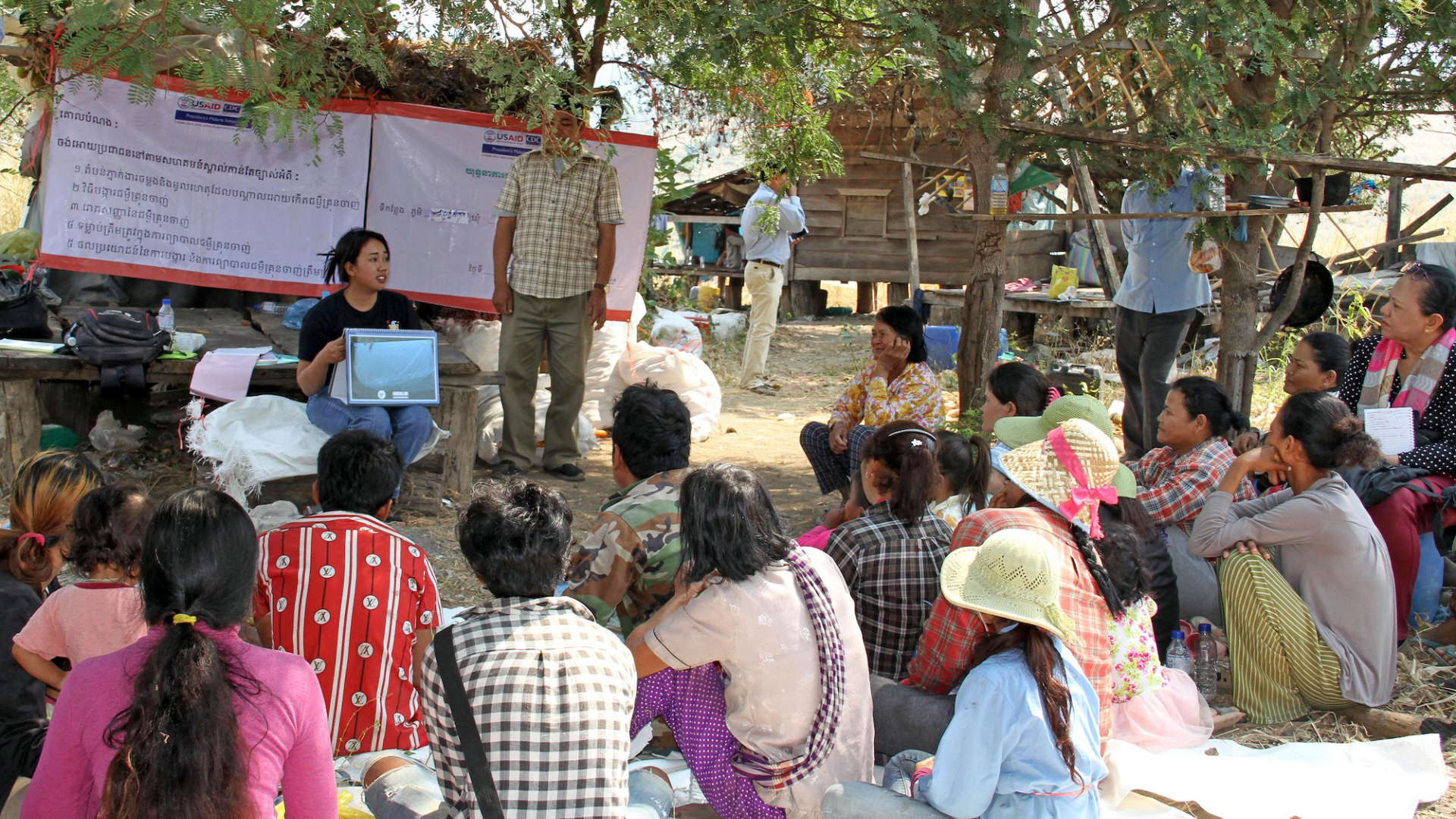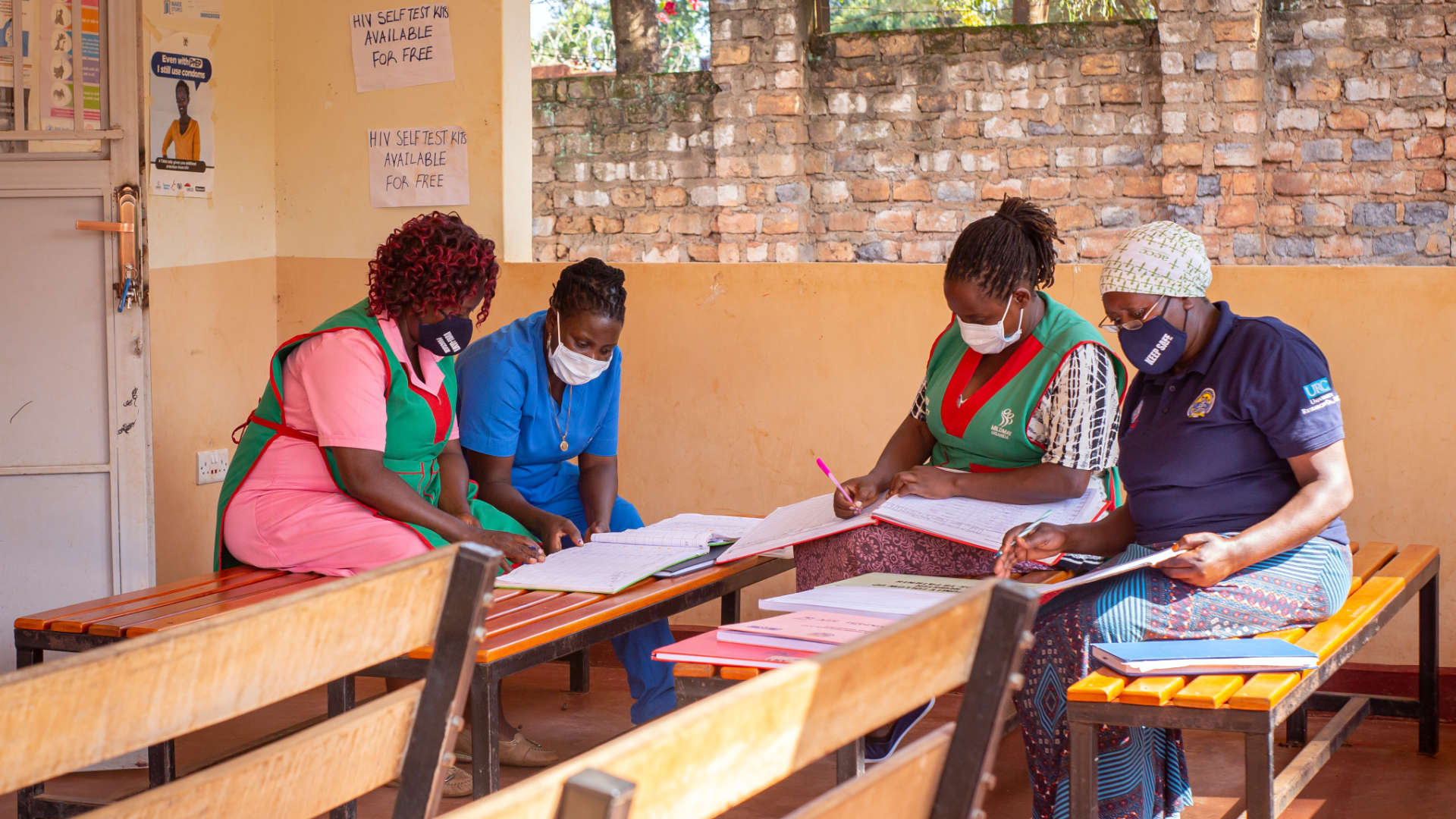In March of 2020, Uganda identified its first COVID-19 case. As the government began to use health centers as COVID-19 quarantine sites, people began to stop seeking health services there for fear of contracting the virus. Health center visits for care and malaria prevention and treatment services plummeted at the Atiak Health Center IV in the Acholi sub-region of northern Uganda and other health facilities in the region.
Aware of the health center access challenge, the USAID RHITES-N, Acholi Activity (RHITES-N, Acholi), implemented by URC, engaged Robert P’okot Olanya, a medical laboratory technician, to carry out malaria services utilizing the test, treat, and track approach. Olanya had received training in malaria microscopy from the U.S. Centers for Disease Control and Prevention. RHITES-N, Acholi works to increase the access and utilization of health services, including malaria services, in the Acholi region.
Going Above and Beyond to Test Thousands for Malaria
With RHITES-N, Acholi support, Olanya sprang into action to ensure that the supply of malaria commodities in the region was not interrupted. He engaged with the local council system (political-administrative unit based at the village level) to get their buy-in and strengthened community mobilization through household mapping to track visits when providing door-to-door service delivery. He crossed seasonal rivers on foot to reach pregnant mothers and children under five, ensuring communities had access to malaria prevention and care services and nutritional assessments.
These heroic efforts, above and beyond his regular tasks, helped save the life of Gifty Akello, a young disabled woman who was home alone and malnourished because her mother was in a quarantine center. She tested positive for malaria and received treatment on the spot. With the help of a local council chairperson, a nearby relative was identified to support Gifty to receive nutritional support at the Ataik H/C IV Nutrition Unit.
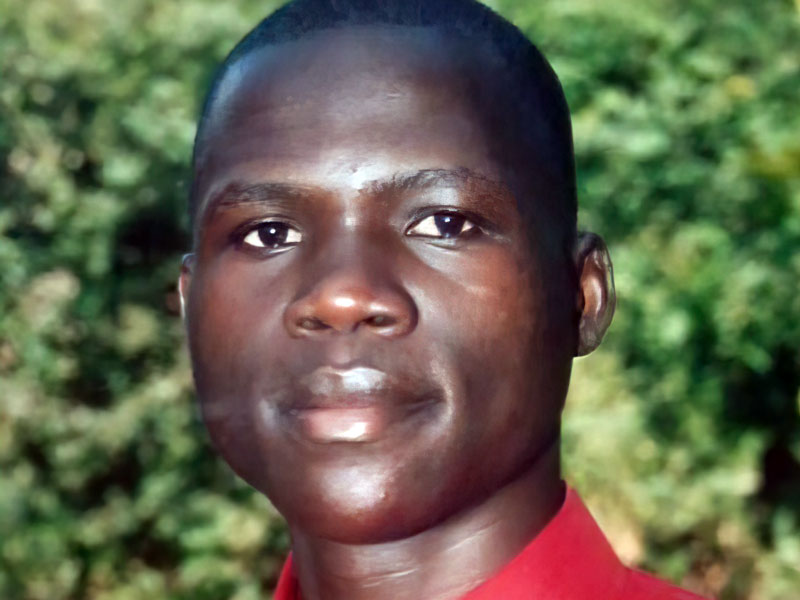
Olanya has supported 58 villages in Ataik and Pabbo sub-counties in Amuru District to receive malaria services – testing, along with his team, 14,034 people for malaria and providing on-the-spot treatment for 9,137 people who tested positive between October 2020 to February 2021.
“Managing malaria during the COVID-19 outbreak has been challenging,” Olanya said. “Government guidelines stipulated that any suspected fever or case should not come to a health center. Health workers were told to go to a patient with a fever. Many patients with complicated malaria ended up staying home without treating the disease.”
Efforts Reduce Mortality Rates
Olanya has mobilized households for malaria prevention activities, educated the community, and mentored health workers to maintain quality processes for detecting and treating malaria cases. He is passionate about his work and understands the importance of community involvement in tracking down and eliminating the disease.
Efforts by committed individuals such as Olanya have led to dramatic improvements in the coverage of malaria control interventions in Uganda. The country has documented significant declines in all-cause mortality rates, including malaria, among children under five years of age, even during the Covid-19 pandemic. Community-level efforts have become essential to sustain gains in disease control and prevention where COVID-19 delays typical care-seeking behaviors.
